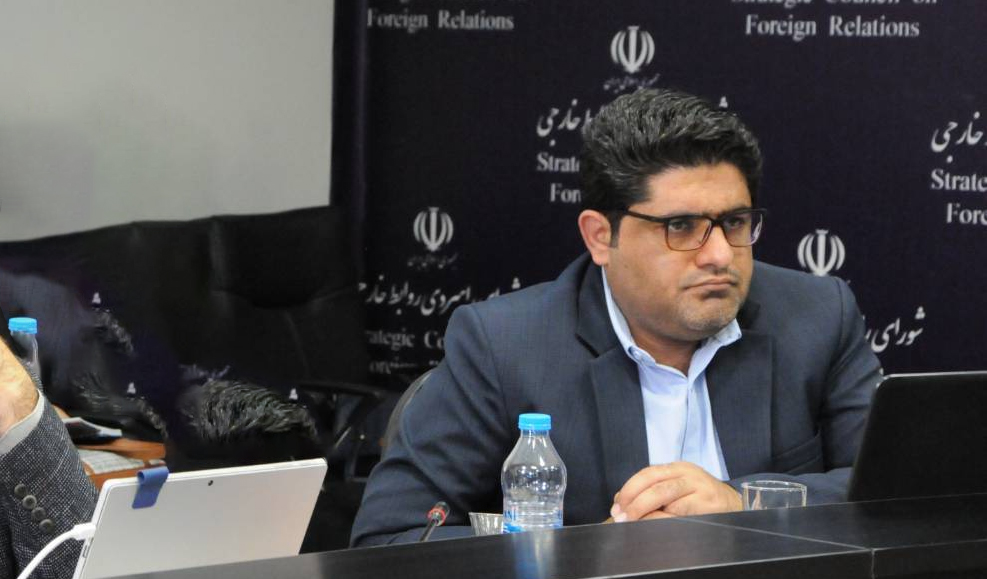According to the website of the Strategic Council on Foreign Relations, Dr. Saeed Chehrazad, postdoctoral fellow of Allameh Tabataba’i University, speaking at the second specialized meeting on “Foreign Relations in the Artificial Intelligence Era” hosted by the Strategic Council on Foreign Relations and on the topic of “Requirements for the use of artificial intelligence in Iran’s foreign policy,” he stated: Different countries are using this capacity and China has even defined a toolbox in this regard.
Stating that in Southwest Asia, the UAE, and Qatar are leaders in the use of AI in different policy fields, including diplomacy and foreign policy, he said: The relationship between artificial intelligence and foreign policy is systematic. For the interdisciplinary study of diplomacy and artificial intelligence, there is a triple application in this triple application model: one is artificial intelligence for diplomacy, the other is diplomacy for artificial intelligence, and the third is artificial intelligence in diplomacy.
The expert continued: Fields such as international security, cyber security, threat monitoring, and risk management in the global arena require human presence and recognition. Few thinkers say that all work should be entrusted to artificial intelligence. Artificial intelligence is a human tool and assistant for politics and diplomacy.
Emphasizing that international scientific cooperation and artificial intelligence diplomacy are different, Chehrazad explained: With all the commonalities, international scientific cooperation seeks scientific discovery, but in artificial intelligence diplomacy, three main indicators should be seen are “political goal and obtaining benefits and national security,” “political effect” especially in the transition period of the world order, as well as “doing it in a political context.”
Referring to the requirements and goals of establishing artificial intelligence, he added: The role of the link between the national innovation system and the international innovation system is the responsibility of the Ministry of Foreign Affairs. In addition, optimal technology transfer can happen with the help of diplomacy. This is not possible without considering technology transfer mechanisms.
Emphasizing the need for moving towards multilateralism to increase scientific exchanges, the expert stated: All leading countries have a national strategy for artificial intelligence. This issue should be the introduction to our use of artificial intelligence. Organizations like the United Nations and the European Union have also taken measures. We can also play a role as one of the important players in the new global algorithmic order.
Emphasizing the need to attract, maintain, and support artificial intelligence experts inside the country as requirements for the application of artificial intelligence, he continued: We must pay attention to the fact that, as in the past, geopolitics is no longer territorial and has become non-territorial. Therefore, we must consider the geographic integrity of data against global threats.
Chehrazad noted: We should also consider our activity in the international political economy of artificial intelligence. At a time when non-governmental players and governmental players can build capacity in this artificial intelligence ecosystem, promoting the country’s welfare through participation in artificial intelligence is one of the necessities.
Pointing to the need to pay attention to the needs of national security when there is no border like in the past, he described the use of artificial intelligence and technologies in which other countries may be more advanced and can bring a strategic error to us as risky. He said that redefining the structure and organizational chart of the Ministry of Foreign Affairs should be done in such a way that the artificial intelligence department has a special place to create a link between the Ministry of Foreign Affairs and engineers.
Emphasizing the need for creating a specific discourse and international narration, with the application of artificial intelligence to use the capacity of the fourth revolution, the expert noted: Although artificial intelligence diplomacy is innovative, Southwest Asia can be chosen as a pilot region, As we can first start our relations with that region and then expand to other regions of the world.
Chehrazad said: Technically, there may have been delays for Iran, but in terms of regulation, it is not too late, and we can enter this field.










0 Comments